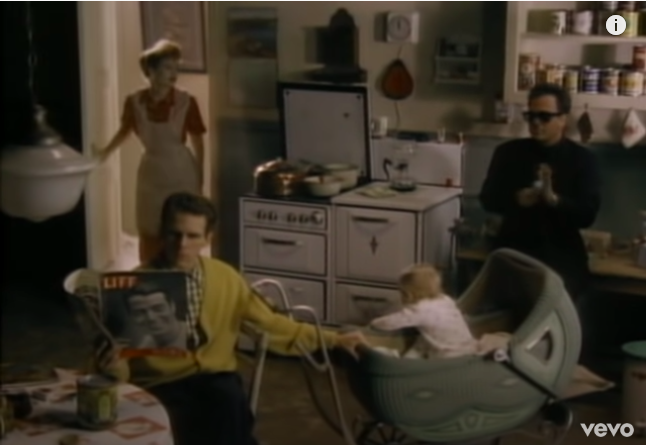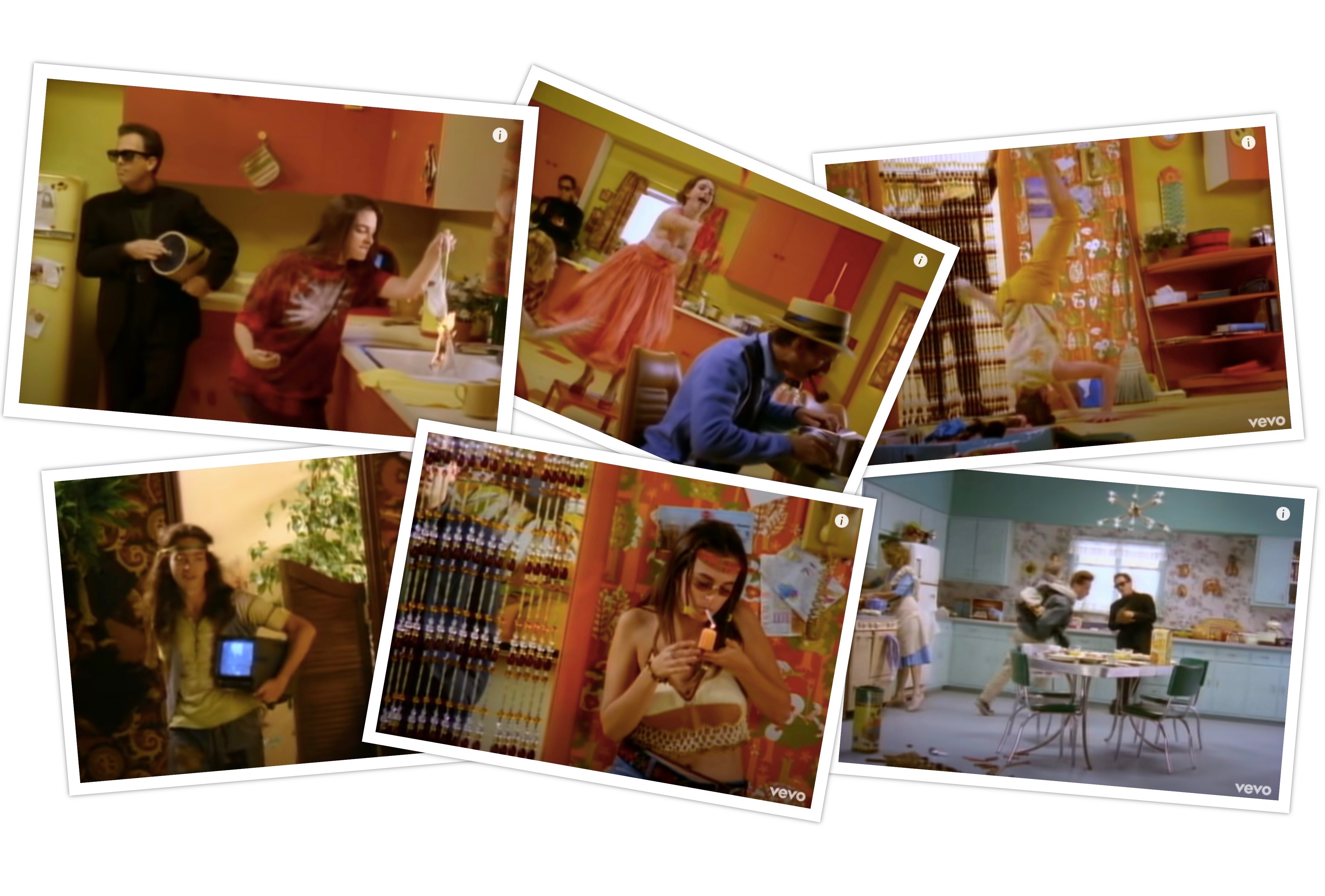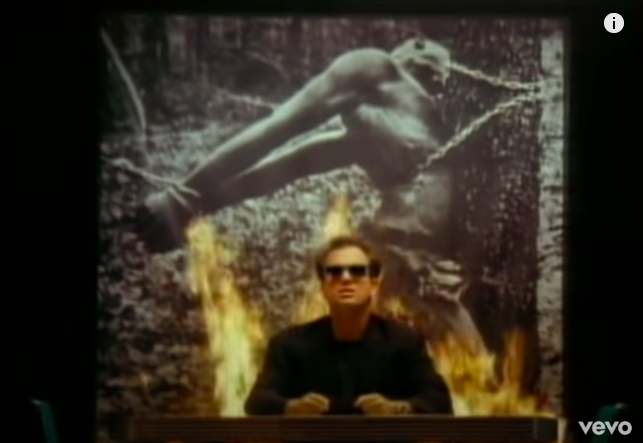Billy Joel’s Romanticized Nostalgia
Although Joel and The 1975 each explore the theme of nostalgia, “We Didn’t Start the Fire” is a romanticized version of this longing for the past. Joel uses “We Didn’t Start the Fire” to mock those who believe the 1950s and 1960s were the “golden years” and free of flaws. The song’s genre, rock/pop and electronic, represents the modernization of the past’s political decisions, while the style, singer/songwriter, plays into this fetishization of nostalgia (“We Didn’t Start The Fire,” AllMusic). The singer/songwriter style romanticizes nostalgia by pulling the listener into the past through the traditional style of Joel. Throughout “We Didn’t Start the Fire,” however, Joel transforms his typical style from singer/songwriter and rock during the verses to new wave in the chorus. This allows Joel to appeal to multiple generations, both old and new.
The shift from singer/songwriter verses to new wave chorus transforms “We Didn’t Start the Fire” into a storyline. The song reconstructs Joel and his generation into the protagonists of the story as the previous generations become the antagonists (Hall, “We Didn’t Start the Fire by Billy Joel”). In this storyline, Joel as the main character uses an upbeat rock/pop genre to romanticize nostalgia while simultaneously portraying how current generations must face the “repercussions of actions performed by our ancestors” (Hall, “We Didn’t Start the Fire”). Joel’s frustration of facing the consequences of the past’s political decisions is displayed in the texture of “We Didn’t Start the Fire,” where the song’s rock genre acts as more of a scream-along than a melodic tune.

The video for “We Didn’t Start the Fire” emphasizes this storyline with a twist. In the video, Joel glides through generations beginning in the 1950s. With each verse, a romanticized American household is portrayed, yet once the chorus strikes, chaos ensues. Throughout each scene of the video, Joel continues to comment on younger generations by romanticizing rebellious teens while the lyrics remind them of the political chaos that surrounds them. In “We Didn’t Start the Fire,” lyrics such as “Joseph Stalin, Malenkov, Nasser and Prokofiev / Rockefeller, Campanella, Communist Bloc” represent cultural buzzwords of the era by screaming names connected to political wars. This creates a contrast between fetishizing nostalgia and engaging with the reality of political consequences. In doing so, Joel reconstructs the American view of their own country through his visual works, emphasizing how Joel is known for creating a relationship between music and place (Duchan 2015, 38).

In addition, Joel creates this relationship between music and place using the hook of the song, “We didn’t start the fire.” Many listeners “journey to nostalgia and the past through music”, making nostalgia an essential theme to Joel that reoccurs in many of his songs (Bielen 2011, 135). By using this ability to travel through time, Joel sings “We didn’t start the fire” to force the American youth and older generations to acknowledge how their actions affect future generations. Thus, the hook demonstrates both a romanticized nostalgia and acknowledgment of one’s actions, serving as a reminder that while political uproar exists, the blame is on previous generations. Joel expresses not only a longing for the past, but also the repercussions faced by modern American societies as a result of the choices made by previous generations.
When this blame is placed on previous generations, modern youth claim they face more obstacles than older generations (Holden 1989, 21). This generates a romanticized nostalgia of the past and an American obsession with the “golden years” (Frusco 2011, 4). When longing for the past, younger generations romanticize history, as evident in the video for “We Didn’t Start the Fire.” Joel also demonstrates that the concept of ‘golden years’ is misleading, for every generation ‘grows up’ with different political, social, and cultural battles. To catch the viewers’ attention, Joel uses the “golden years” to his advantage. “We Didn’t Start the Fire” portrays the American standard life, capturing a televised, and thus romanticized, image of the 1950s, the decade in which Joel grew up (Frusco 2011, 3). Once the viewers are satisfied with seeing the “golden years” they desperately crave, however, Joel places grave images of the same era behind him while surrounded by fire. This change occurs during the chorus, demonstrating a stark contrast between romanticization and reality. Yet once Joel sings the verses again, images of the “golden years” return, demonstrating that history is quickly forgotten and only a romanticized version of such is left behind.
